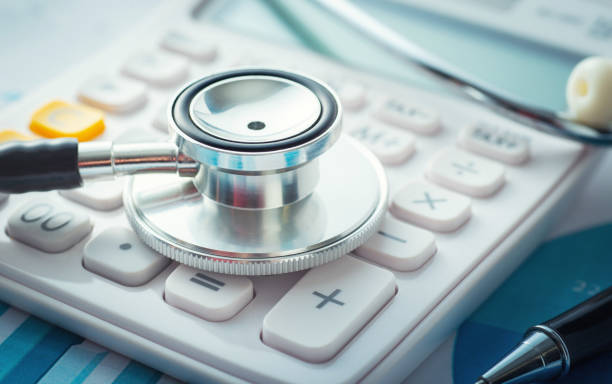Barcodes have become a crucial part of our life today since the time they were invented, especially for tracking of goods and assets in industries, corporate offices, healthcare facilities, etc.
Implementation of medical device barcode enables hospitals to track their machines, equipment, fleet, etc. Application of barcodes on the devices allows hospital staff to gather all information about hospital goods and track them through the automated ordering system when stocks get below the minimum level set.
Moreover, the medical device barcode services is helpful in removing unwanted or out-of-date products and goods from the inventory in the overall interest of keeping the patient’s security intact.
The benefits include the improvement of patients’ security with a streamlined health system. The automated system of inventory tracking software prevents human errors involved with inventory and medication intended for use in patient care.
Medical device barcode tracks the effective use of different equipment, machines, and devices. For instance, some of the equipment can wear out faster than others, so keeping them in record informs hospital staff how frequently they need to refill or purchase that unit for continued operations.
UDI is the unique identification number or code given to a specific device from the medical device manufacturer. These UDIs are used to gain benefits from the long-term operation of the devices in hospitals. The UDIs can be incorporated with the asset management software to adapt more information through tracking and managing system of inventory to achieve more significant and cost-related savings.
Medical device barcode also bring on other benefits like:
- Improved inventory control
- Increased sales (for a manufacturer)
- Enough time to detect issues
- Accuracy in billing
- Reduction in fraud
The UDI System benefits healthcare providers, manufacturers, and individual consumers by enabling:
- Fast inspection of flawed medical devices
- Faster recalls
- Reduction in medical errors
- Reduction in counterfeiting
- Improved patient treatment
- Better assessment of device performance
- Improved inventory management
- More time involved with patients
Benefits of Implementing Medical Device Barcode
There are many benefits of an updated system of tracking and managing information for medical devices through UDI information such that manufacturers can also see the counterfeit products before they intrude into the market. This is made possible through the efficient tracking processes currently in vogue.
All data of previous products is also kept to analyze and match the information about current products. This information is checked for compliance, better usage, the efficiency of the product and to match the operative life of the product (outdated) so as to remove it from ongoing business.
Scanning technology for barcodes and labels associated with medical devices can be used in a range of healthcare areas, such as:
- Patient identification and profiling
- Patient movement and handover
- Diagnosis, including pathology and radiology
- Medication management
- Blood transfusion
- Surgical procedure
- Devices and implants
- Medical record tracking
- Sterile services
- Asset management
The medical devices labels are also associated with purchase and acquisitions of inventory or consumable items other than just keeping track of medical devices. To extract more benefits from the medical devices, the manufacturers have to link UDI implementation process in order to meet compliance standards.
The UDI framework is important for manufacturers to put themselves ahead of the other competitors, to avoid fines, recalls, rejections or any other kind of delay.
The benefits of using medical device barcode are:

1. Device Registration
Barcodes helps in efficient data entry of into device registries.
2. Relevant Allotment
Set up inventory or equipment to relevant departments in accordance with their utilization and discard ratio.
3. Accurate Device Information
The entry of accurate device information is necessary for medical records to reduce the burden of nurses and improve accuracy in the use of medical devices etc.
4. Proper Invoices
Proper invoices and insurance claims to prevent incomplete billing.
5. Medical Safety
Medical safety is necessary to avoid the use of an incorrect device or out-dated device. This can be achieved by the proper use of medical device labels.
6. Device Maintenance
Proper device maintenance ensures maintenance work on a regular basis by cross-checking with logs and registers and generating notification and alerts for inspection dates.
7. Sterilization of Devices
Management of sterilization of devices is as essential as the maintenance of devices. Sterilization is done for repeatedly-used equipment to improve safety due to the traceability of devices and ensuring their accuracy.
8. Medical Devices on Rent
Management of medical devices that are acquired on rent, as this greatly reduces administrative workload.
9. Quick Product Identification
Quick identification of products generates more accurate medical device information for medical institutes, device manufacturers, suppliers, etc. for device identification and defective pieces.
Major Utilization of Medical Device Barcode
There are some major factors for which medical device barcode is used in the healthcare industry. Some of them are:
A. Better Device Assessment
Medical device labels and UDI generate data for medical devices to be tracked on a cloud platform and made accessible to all (those who are to be given access). The information is used to further generate real-time analytics associated with costs, recalls, and waste.
The health inspectors and doctors can view the health outcomes of the device from its performance and operation records.
B. Improved Inventory Management
When all medical devices have barcodes attached to them, there is no inventory or equipment left for vulnerable human error. This enables healthcare administration to reduce waste, audit the inventory more often and ensure availability of required stocks.
C. More Time with Patients
More accurate data allows the doctors and their teams to interact with their patients more instead of getting stressed about the availability of equipment, devices, or their sanitization or readiness for OT or any other issue that takes time and effort.
The personnel can attend to more important tasks and devote more time to patient care. The mental well-being of patients is as critical as their physical health.
Conclusion
The goal of medical device barcode and UDI is to monitor, recall and analyze medical devices present in the premises of healthcare establishments or other associated medical devices (outside the premises).
Thus, the implementation of barcodes is necessary from the perspective of both administrators for achieving cost benefits as well as patients for receiving the best treatment and recovering fast.
Frequently Asked Questions
1. What are considered medical devices?
A medical device can be any item used in hospitals to treat patients such as instrument, apparatus, implement, machine, contrivance, implant, in vitro reagent, etc.
2. What is an example of a medical device?
Examples of a medical device can be ultrasound and MRI machines, PET and CT scanners, and X-ray machines, etc. Treatment equipment includes infusion pumps, medical lasers, surgical machines, life support equipment, and many more.
3. What does UDI stand for?
Unique Device Identification (UDI) is a system that is planned to assign a unique identifier to medical devices.






